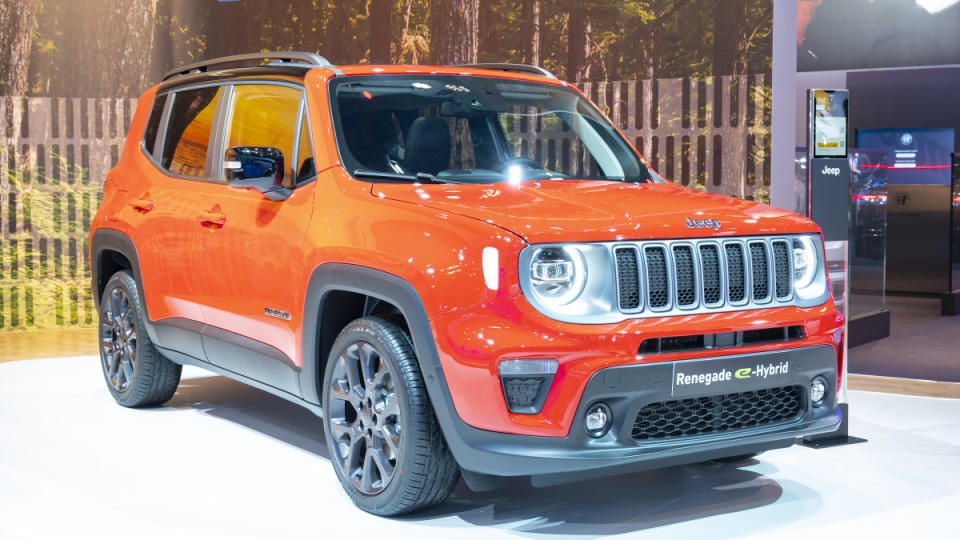When will the U.S. get its first $25,000 EV? Sooner than you think

The Jeep Renegade e-hybrid crossover SUV. Jeep will launch a full-electric version of the Renegade soon. (Getty Images)
Electric-vehicle prices are falling fast in the U.S., but the cheapest models remain far more costly than what other countries have on offer.
The BYD Seagull sells for about $10,000 in China, the Dacia Spring starts at $20,000 in Europe, the Renault Kwid e-Tech costs $19,000 in Brazil, and the Kia Ray goes for $22,000 in South Korea.
So where is America’s $25,000 EV?
In short, it’s coming soon. It may not seem that way at first glance: U.S. vehicle prices in general have soared to around $47,000, on average, and prices for electric models are higher still. Even after price cuts, the country’s best-selling electric sedan, Tesla’s Model 3, starts at around $40,000.
But with signs of slowing growth in the premium EV market, manufacturers have been working on a substantial pivot from luxury to practicality. The $25,000 economy electric car is the industry’s new target, and a number of models are set to hit the road within a year. Whether they can win over the next wave of American EV owners — and fend off Chinese imports currently held at bay by soon-to-be-102.5% tariffs — depends on how much range and how many features can be squeezed in.
Here’s what we know about four efforts underway:
General Motors revamps the Chevy Bolt
The current U.S. leader in EV affordability may well be the new electric version of the Chevy Equinox. The SUV comes with 319 miles of range for around $42,000, before federal tax credits that can knock $7,500 off the price. Those incentives will drop the cost of a base model, available later this year, below $28,000.
That’s pretty cheap, relatively speaking, but it will soon be outdone by the updated Chevy Bolt. GM’s new North American president, Marissa West, says the Bolt will be “the most affordable vehicle on the market by 2025.”
The original Bolt, which GM discontinued this year, has been the most popular EV alternative to a Tesla in the U.S. for the past seven years. The unassuming car was known for mediocre ride quality, limited range and slow charging — but it won over a loyal fanbase with an unmatched starting price of $26,500 before incentives.
The updated Bolt reduces production costs while improving charging times, styling and handling, according to GM. For charging it will use the new North American Charging Standard, compatible with Tesla’s Superchargers, and employ low-cost lithium iron phosphate batteries on GM’s new Ultium EV platform.
Price and specs haven’t been announced, but it’s a likely contender for best range for the price in the new class of $25,000 EVs.

 Yahoo Autos
Yahoo Autos 